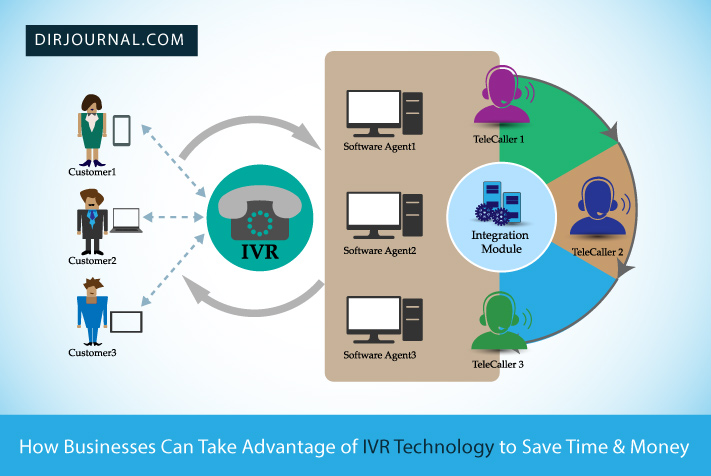The technological advances that have occurred over recent years have led to many great perks for small businesses. Now, it’s easier than ever for small firms to compete with large corporations because they can gain access to systems and services that once were only affordable for the biggest companies. Today, even solopreneurs can take advantage of things like affordable online advertising, low-cost ecommerce payment processing, and millions of free or cheap mobile applications.
Something else that small businesses should consider using in this day and age is an Interactive Voice Response (IVR) system. Read on for the lowdown on this type of technology and how your organization can use it to save time and money.
What Is Interactive Voice Response (IVR) Technology?
Any time that you use your phone or other communication device to talk to a computer system, or it communicates back to you, you’re using Interactive Voice Response (IVR) technology. IVR is used to help humans interact directly with computers over the phone, as it greets and directs calls based on each person’s responses.
This telephony menu system enables people to make a call and receive voice prompts and other automated responses from a computer after they press keys on their telephone keypads. This sends set tones back to the computer, and it can then interpret the tones to communicate in turn. IVR systems can also utilize speech-recognition programs which allow callers to communicate verbally with a computer and then receive a response.
How Can IVR Be Used?
IVR systems act as a first-line agent for organizations, and allow customers to serve themselves without having to speak with an employee directly. The technology enables the segmentations, identification and routing of calls to the most appropriate handlers within a customer service or other team, and can be used to handle a variety of information-collecting and disseminating tasks.
For example, this type of system can allow businesses to record customized greetings, prompts and messages which customers hear when they ring a company. It’s also possible to use pre-recorded IVR messages that come with most systems; and to use the technology to direct each call after data has been collected from the person on the phone.
The main way though that this technology tends to be used is for IVR payment processing. Interactive voice response systems can easily look after automated revenue processing, and they handle both inbound payments and outbound notifications. Mobile-friendly payment options can be utilized, and customers can also find out information such as account balances or the types of payments accepted.
What Are Some Benefits?
There are numerous benefits to be enjoyed from implementing an interactive voice response system. For starters, there are savings (both time and money) to be had when it comes to the area of customer service. With IVR, customers can solve their own problems and find out the information they need without having to speak directly with an employee. This frees staff members up to concentrate on other tasks and thereby improves productivity and saves money.
Similarly, IVR systems collect information about a person’s needs, and can then route a caller to the right department or team member. This also increases efficiency, while at the same time ensuring that errors are much less likely, and a customer’s wait time is reduced. IVR technology can thereby make clients happier, because they don’t have to spend time waiting to hear from a customer service agent.
In addition, calls can be resolved on the first attempt, because callers either find out the information they need; complete an action using computer prompts; or are transferred to the right person straight away. This leads to more satisfied customers.
The personalized aspect of IVR recording is also beneficial, as any type of greeting can be used on the systems. The recordings can then be updated according to different days, seasons, times of year, or marketing schedules etc.
IVR systems are also great for businesses which deal with high call volumes. The technology directs callers, and lets them transfer themselves to the right department. This means that more calls can be answered simultaneously, and inbound call capacity increases.
Another benefit of interactive voice response systems is that they can make smaller companies look much bigger than they are. Rather than have a single receptionist or other team member deal with calls, IVR systems process incoming calls automatically and professionally at all times. This gives the impression that the company is so large that it needs an automated system to handle the volume. In turn, this typically leads customers to place more trust in the brand, because they feel like they’re dealing with a more established organization.








Hi, Hasan and thanks for sharing this necessary as well as informative post. The way you explained and mentioned about the topic was awesome bro…